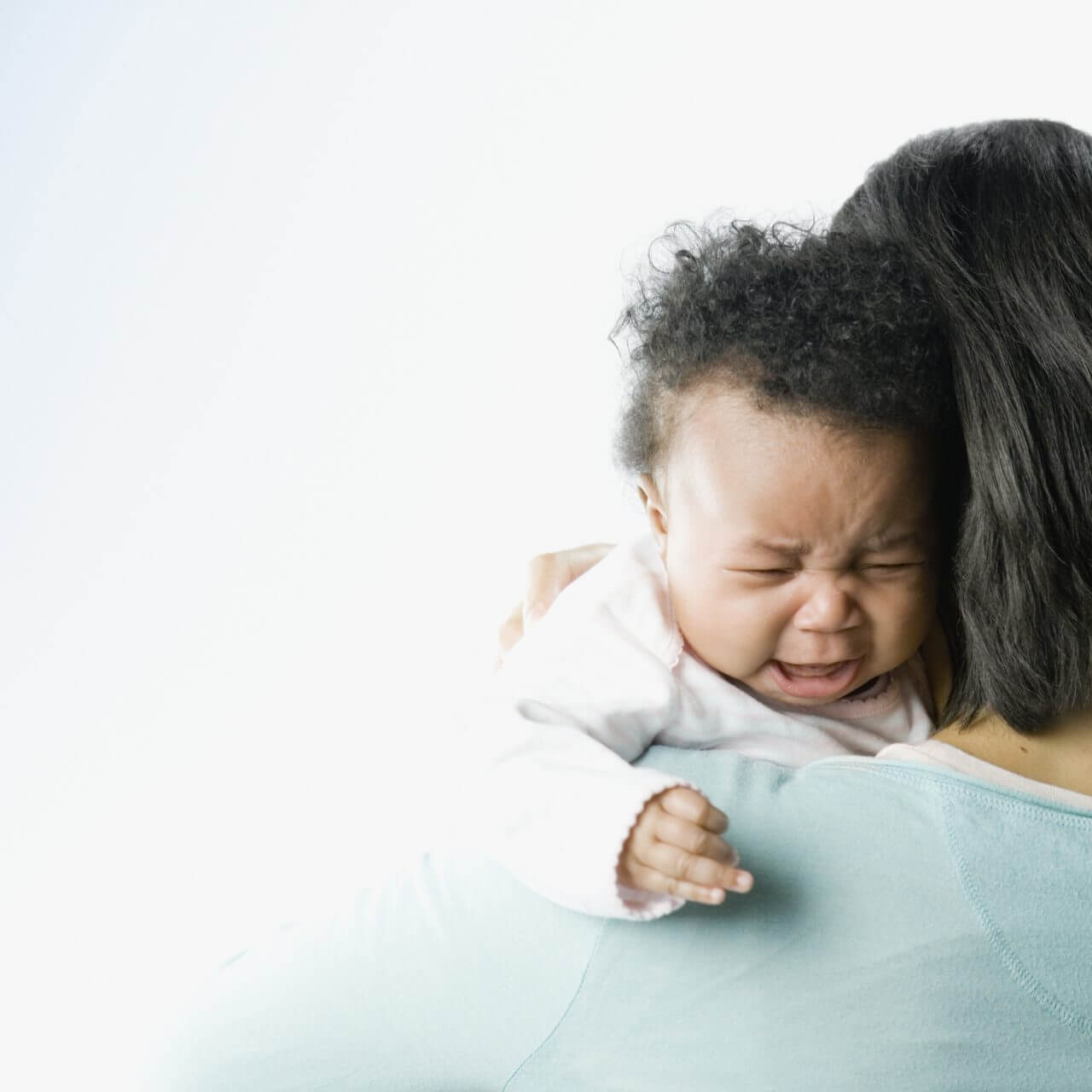What Causes Babies to Have Gas?

As every parent knows, babies can become very uncomfortable when gas builds up in their intestinal tract. Why are they prone to becoming gassy? One reason is that they tend to swallow a significant amount of air through breastfeeding or bottle-feeding, crying and sucking on a pacifier. Another is that a baby’s immature digestive system isn’t yet effective at moving gas to the point where it can be expelled from the body. The result can be pain in their belly that leads to fussiness and/or tears.
Signs Your Baby Has Gas
When your baby has excess gas, you may notice that he/she:
- Acts fussy
- Burps
- Cries
- Passes gas
- Has a hard belly
Fortunately, there are steps you can take both to prevent gas build-up and help relieve it if it occurs.
Strategies for Preventing or Relieving Gassiness in Your Baby
To help prevent your baby from becoming gassy or reduce the pressure if it develops, try these strategies:
- Ensure that your baby’s head is higher than his/her stomach when feeding. This allows the milk to go to the bottom of the stomach, leaving the air at the top where it’s easier to burp out.
- Burp your baby both during and after a nursing session. If no burping occurs, lay your baby on his/her back briefly and try again.
- Do “bicycling”. Lay your baby on his/her back and slowly pump the legs to mimic pedaling a bike. This can result in passing gas.
- Gently bounce. Hold your baby securely on your lap while you sit on a bed or exercise ball and bounce up and down.
- Give a warm bath. This can help your baby relax, which makes it easier to move gas through his/her system.
- Give a massage. Gently rub your hand on your baby’s belly from top-down and/or in a circular motion.
Gassiness tends to resolve itself with time and with the help of these strategies. But, if your baby is especially uncomfortable, doesn’t poop for a longer period of time than normal, has bloody stools, vomits, or has a fever, you should contact your doctor right away. These symptoms may indicate an infection that should be treated.
Learn More About Pediatric Care at Baptist Health
Have questions about your baby’s health? Learn about pediatric care at Baptist Health.



